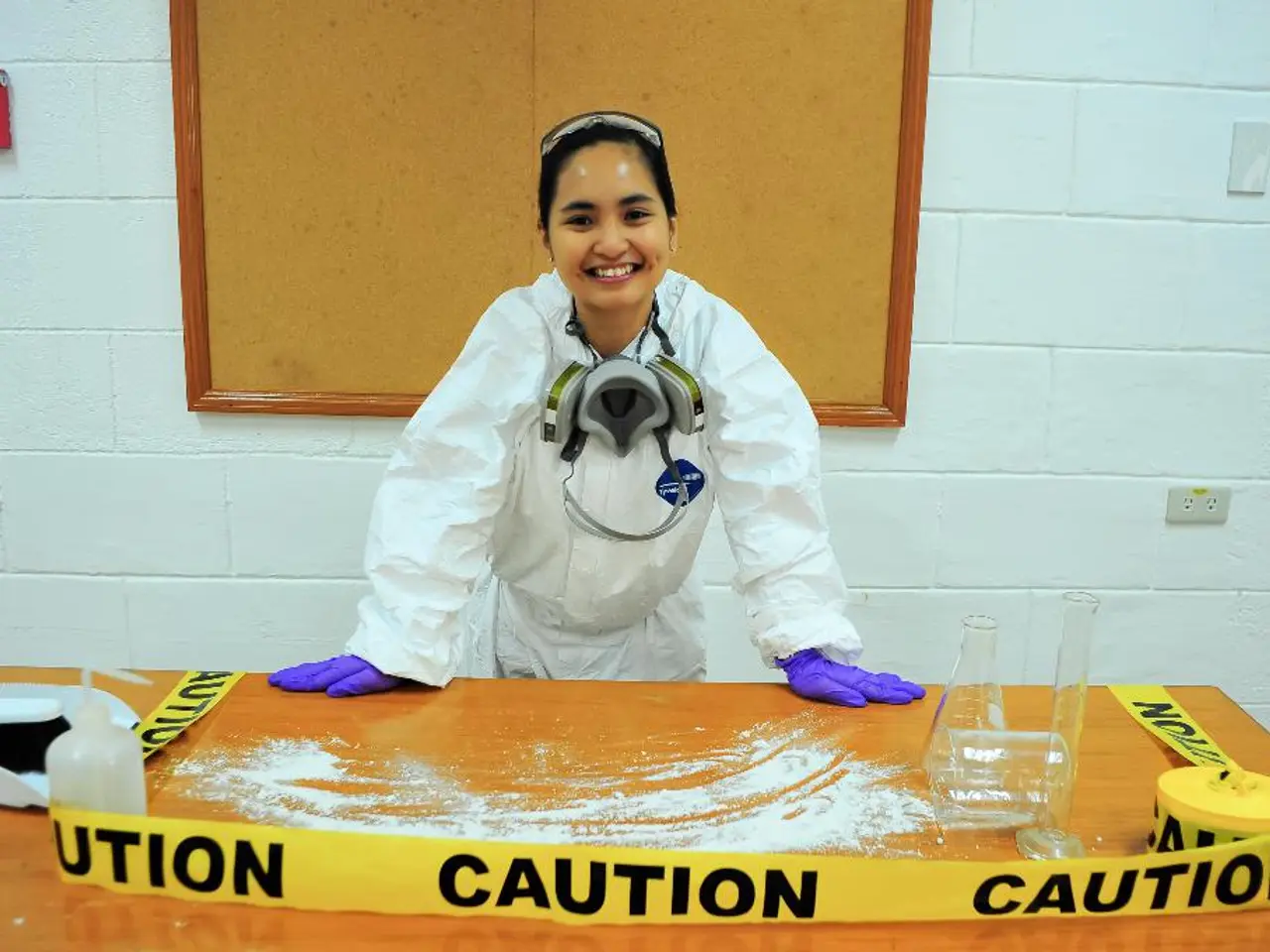Creating essential oils and hydrosols
Toko School Students Embark on Distillation Project, Enhancing Science and Math Skills
Students at Toko School in Taranaki have been on an exciting journey, delving into the world of essential oils and hydrosols through a distillation project. Inspired by a question about candle scents, the project has seen the students learning about measurement, changes of states of matter, and density, among other scientific concepts.
The project, funded by Venture Taranaki's Participatory Science Platform (PSP) initiative, has allowed the students to purchase two stills and associated equipment. This hands-on approach to learning has not only made science and maths more engaging but has also significantly improved the students' math skills.
The students have observed the evaporation and condensation processes and have even used the freezer to separate the oil from the hydrosol, a process called drying the oil. They have also learned that many essential oils are less dense than water, causing them to float on the surface of the hydrosol, while other oils, like cinnamon leaf and clove, are denser and sink below the water.
The project has also involved working with local experts such as Jim Bennett of Still Valley, Liz Sinclair of Pihama Lavender, and a local gardener named Sue Rine. The students visited Pihama Lavender to learn about steam distillation and the uses for lavender oil and hydrosol.
In addition to learning about the production of essential oils, the students have also been encouraged to explore a diverse range of plants for a diverse range of purposes. They have even taken on a challenge from the school's cleaner to find a natural product that can help clean the classrooms.
After testing their products for cleaning effectiveness, using them to remove paint, crayon, and glue residue from desks, the students found that lemon and hinoki cypress have been the most effective cleaning products among those tested. The students hope that their cleaning products will fund a new series of investigations.
The Curious Minds PSP is a New Zealand initiative designed to connect schools, communities, and scientists to provide real-world science and maths experiences. Through PSP, students gain exposure to practical applications of scientific methods, data collection, and analysis, fostering critical thinking and inquiry skills in real-world contexts.
The project is covered in the 2020 "Connected" article "Making scents". Venture Taranaki Trust, the regional development agency for Taranaki, partnered with the Taranaki Regional Council to lead the PSP pilot in Taranaki.
In conclusion, the distillation project at Toko School is a prime example of how participatory science platforms can create accessible, inclusive, and engaging science and maths opportunities linked directly to real scientific research and outcomes.
- Through their distillation project, Toko School students have been learning about science concepts like measurement, changes of states of matter, and density, while also exploring health-and-wellness aspects such as the production of essential oils and hydrosols.
- The project, which is part of the Education-and-self-development category, has also sparked the students' interest in fitness-and-exercise, as they found out that some essential oils, like cinnamon leaf and clove, are denser than water and sink below the surface.
- Besides learning science and math, the students have been immersed in a nutritional study, discovering the cleaning properties of plants such as lemon and hinoki cypress, contributing to their own learning while also addressing a practical need in health-and-wellness: a cleaner classroom environment.




